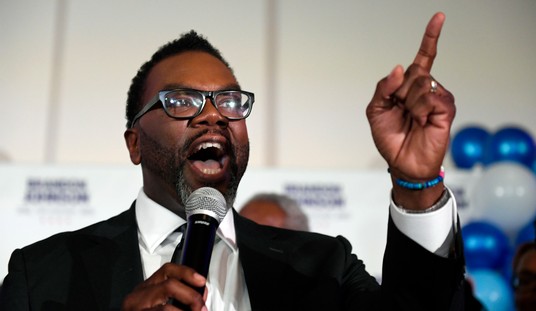January 30 was the deadline for submission of candidate lists for the Israeli elections. Twenty-six separate parties submitted candidate lists, some with rather colorful names (like “Greens Don’t Give a F***”, in English, no less). Of these, only ten or so have any real chance of passing the current statutory threshold of winning enough votes to elect 3.25 candidates (meaning that the practical minimum number of seats which any party will hold in the Knesset is three).
A digest of Israeli polls somewhat analogous to the RealClearPolitics average, released last Friday, is a clear indication of just how tight this election really is. The current numbers:
HaMachane haTziyoni 25 seats 24 seats
Likud 24 seats 26 seats
HaBayit haYehudi 15 seats 14 seats
United Arab List 12 seats 12 seats
Yesh ‘Atid 9 seats 11 seats
Kulanu 8 seats 8 seats
Shas 7 seats 7 seats
Yahadut haTorah 7 seats 8 seats
Yisra’el Beytenu 5 seats 5 seats
Meretz 5 seats 6 seats
Yachad 3 seats 0 seats
Of the above, HaMachane haTziyoni, Yesh ‘Atid, and Meretz may be characterized as parties of the secular Left; Likud and HaBayit haYehudi as parties of the secular Right; Kulanu and Yisra’el Beytenu are vying for the secular “center,” if such can be said to exist.
Shas and Yahadut ha-Torah represent the non-Zionist religious community, and Yachad is making a strong bid to represent the Zionist “national religious” community.
HaMachane haTziyoni is a joint list consisting of the fused Labor Party and HaTenu’a (the latter had been a junior coalition partner in the now-dissolved previous Knesset); the new list’s co-chairs are Yitzhak Herzog (Labor) and Tzipi Livni (HaTenu’a).
The United Arab List is a joint list, fusing two previous parties representing the anti-Zionist, somewhat subversive (if not openly treasonous) Arab point of view, and Chadash, as the Israeli Communist Party, which mostly attracts Arab voters. This by no means represents all ethnic Arabs in the country: Labor, Likud, and even Shas all attract significant numbers of Israeli Arab voters (these include not only Muslims, the largest component, but also Christians and Druze, most of whom speak Arabic).
Yachad is a new list, appearing here for the very first time as passing the threshold. It consists of a joint list between Ha‘Am Itanu, a new religious party formed jointly by Eli Yishai, former head of Shas, and Yoni Chetboun, formerly of HaBayit haYehudi, and ‘Otzma Yehudit, a very nationalist party headed by Baruch Marzel and Michael ben-Ari. The latter refused to join Naftali Bennett’s Bayit Yehudi party because it was insufficiently right-wing for him.
(For more detailed analysis of the parties involved, read here.)
The synthesis suggests that the Leftist, anti-Netanyahu campaign is beginning to have some effect, since in the previous synthesis Likud had been leading by two seats. However, most of the polls in the digest were taken before the full impact of the American intervention on behalf of the Left.
On February 1, several Likud politicians held a dramatic press conference in which they alleged that Labor had accepted improper financial support from non-governmental organizations (NGOs) partially or entirely funded by foreign interests. This was an obvious reference to the V15 group, whose “partnership” with OneVoice International, an American NGO whose website boasts that it is a partner of the U.S. State Department, has now been widely reported in the Israeli press.
Yitzhak Herzog has responded to these allegations with the Israeli equivalent of pleading the fifth. He also offered lame allegations of equivalence with the support Likud enjoys from the popular Israeli daily Yisra’el Hayom, which is owned by Sheldon Adelson. The impact on this week’s upcoming polls will be very interesting indeed.
In other news, Manuel Trajtenberg, HaMachane haTziyoni’s nominee for finance minister, decried the slippage in Israeli government spending under the previous coalition. He suggested that it be raised to 40% of GDP and pegged there by law (last year’s budget is estimated to have been 39% of Israeli GDP; the OECD average is 46% of GDP. For comparison, U.S. government spending is estimated to have been 35% of GDP in 2014.
Trajtenberg also called for publicly owned land to be made available gratis for future housing projects as a way to reduce the cost of housing in Israel, a major domestic issue which was the subject of protest rallies in recent years. He also called for the appointment of a government minister to man a “situation room” dealing with housing issues.
In contrast, the more classically liberal Moshe Kachlon, leader of the new Kulanu party, has called for abolition of the Israel Land Authority and dismantling of its bureaucracy to reduce the cost of land and government spending generally.
Trajtenberg’s economic platform was predictably assailed by Likud, chief party of the outgoing coalition (which has not yet released an economic platform of its own) as fiscally irresponsible, and by the further-left Meretz party as insufficiently redistributionist.
Conspicuously absent from the event in which Trajtenberg unveiled his platform were any other Labor party leaders, who are reportedly unhappy with the platform. Israeli Channel 2 has reported a major dispute amongst the Labor elite at a party meeting on Monday, many of whom regard Trajtenberg as too capitalistic for their taste. Not surprising, perhaps, from the party which the present American administration seems to prefer.
Last week’s polls still suggest a new Israeli government coalition will form on the right, most likely including Likud, HaBayit haYehudi, Kulanu, Shas, and Yahadut haTorah, which with the above numbers would yield a slender coalition of 61 seats. This could be expanded by the addition of either Yisra’el Beytenu or Yachad, neither of which seems likely at present, although a possible split in Yachad — which ironically means “Together” in Hebrew — could allow Eli Yishai and Yoni Chetboun to join the coalition, boosting the total to 63.
By contrast, a coalition of the Left, even with the historically unprecedented inclusion of the United Arab List, would yield only 51 seats, 10 short of a majority. Participation of any of the “centrist” or non-Zionist religious parties in such a coalition to boost its numbers is extremely unlikely, so Binyamin Netanyahu is still the likely next prime minister.









Join the conversation as a VIP Member